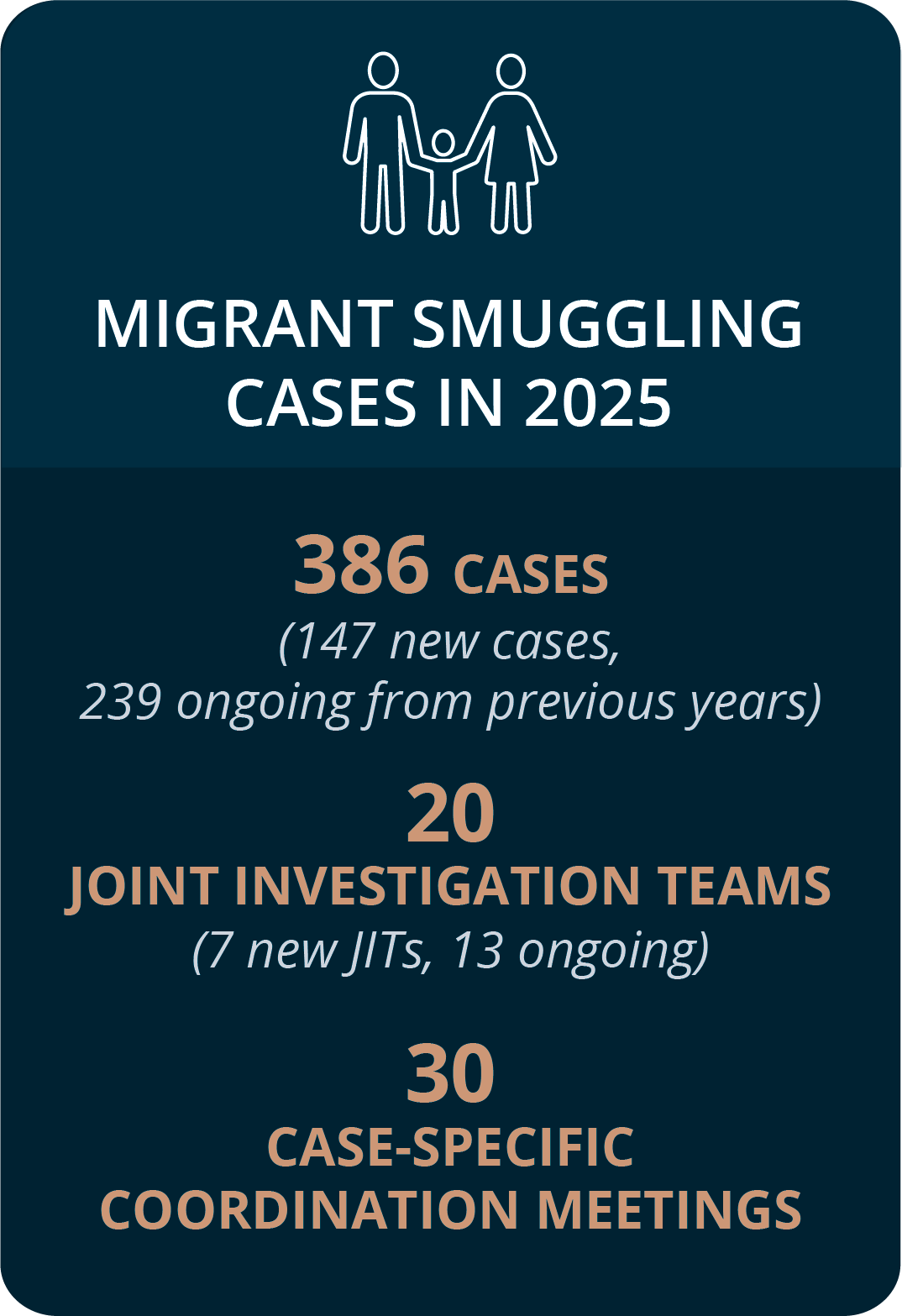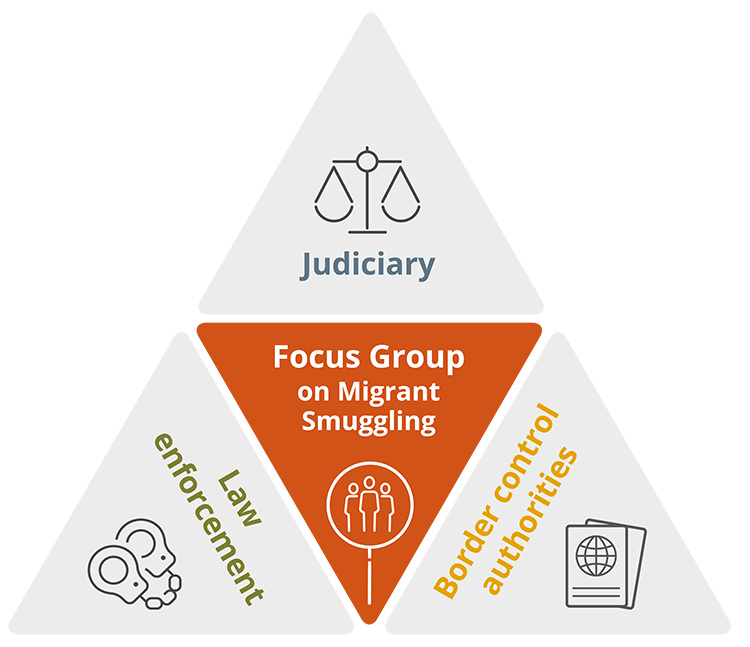
Migrant smuggling crimes are committed by connected organised criminal groups (OCGs) or by transnational OCGs working in trafficking routes, often ruthlessly endangering the life and limb of migrants throughout the journey by land, air or sea.
To successfully disrupt and prosecute intricate international smuggling routes, it is important to involve both the judiciary, law enforcement and border control authorities from all countries along the migrant smuggling route, from the countries of origin outside the EU, the countries of transit and the destination countries in Europe.
These authorities need to share information, trigger investigations in all countries where OCG cells operate, work out a coordinated prosecutorial and investigative strategy, obtain admissible evidence, and ensure an effective seizure and confiscation of the assets.
Migrant smuggling criminal groups regularly also engage in related crimes, such as money laundering and illegal attempts to obtain citizenship of an EU Member State through document forgery and sham marriages. Other crime groups turn on their customers and make them victims of human trafficking for modern slavery.

